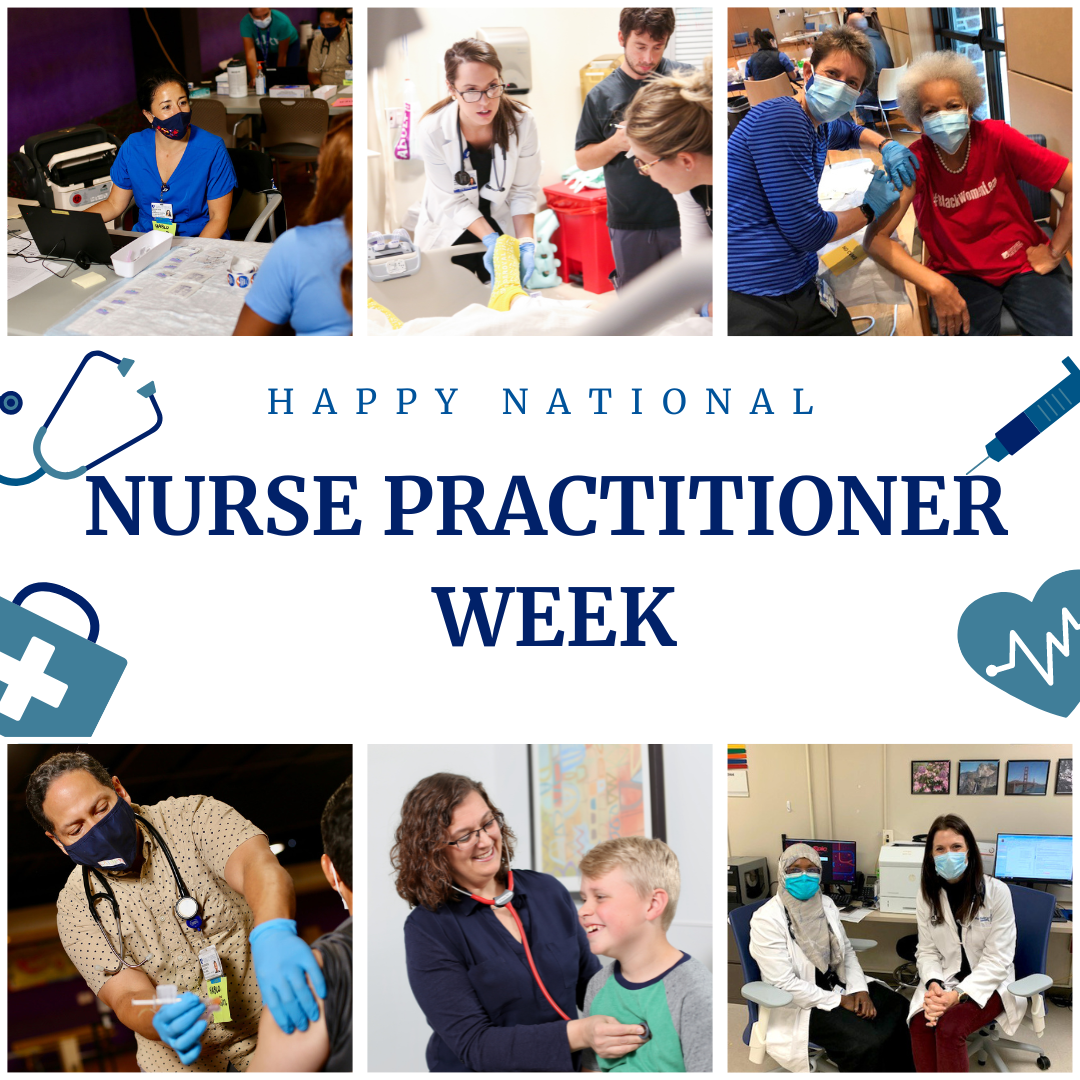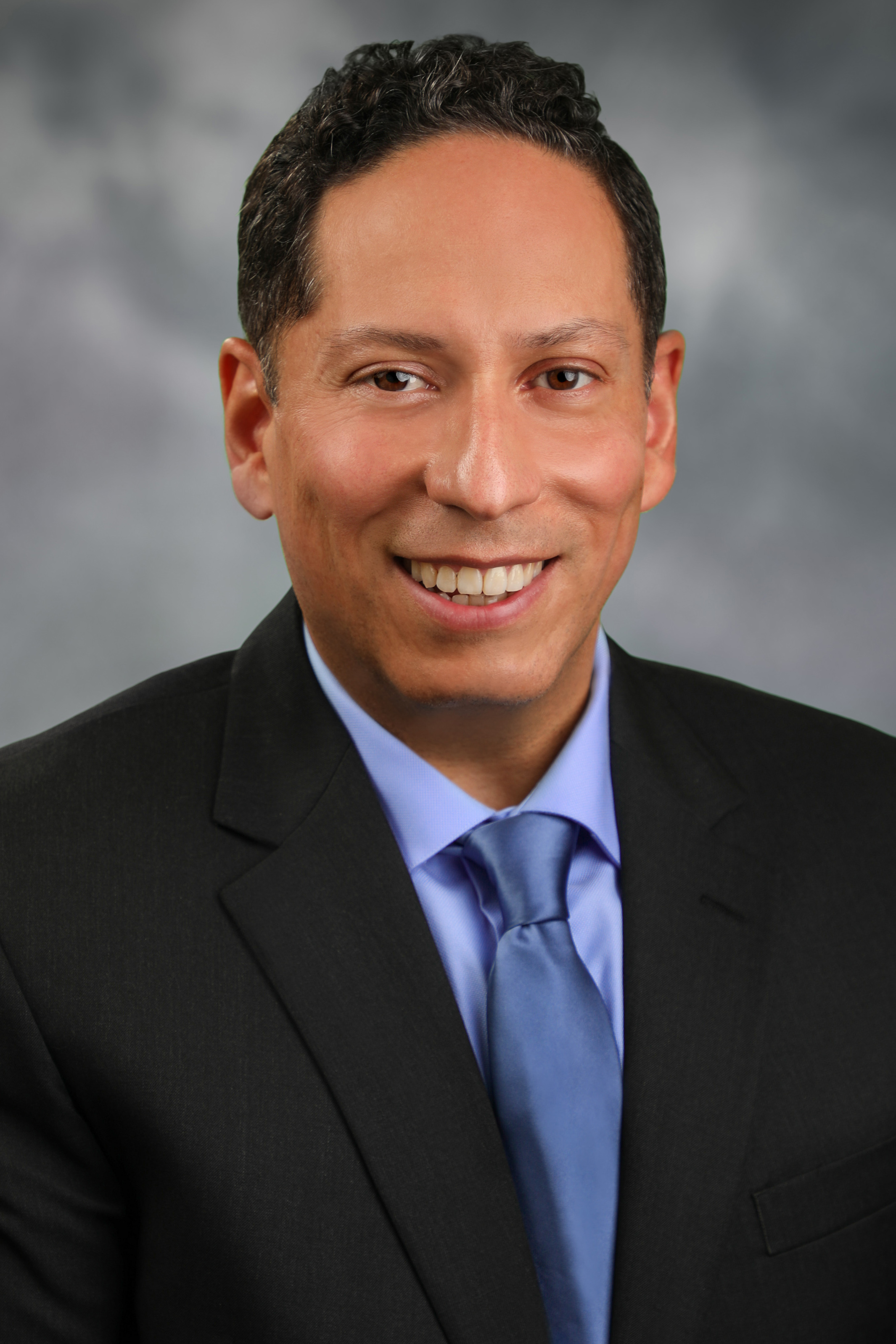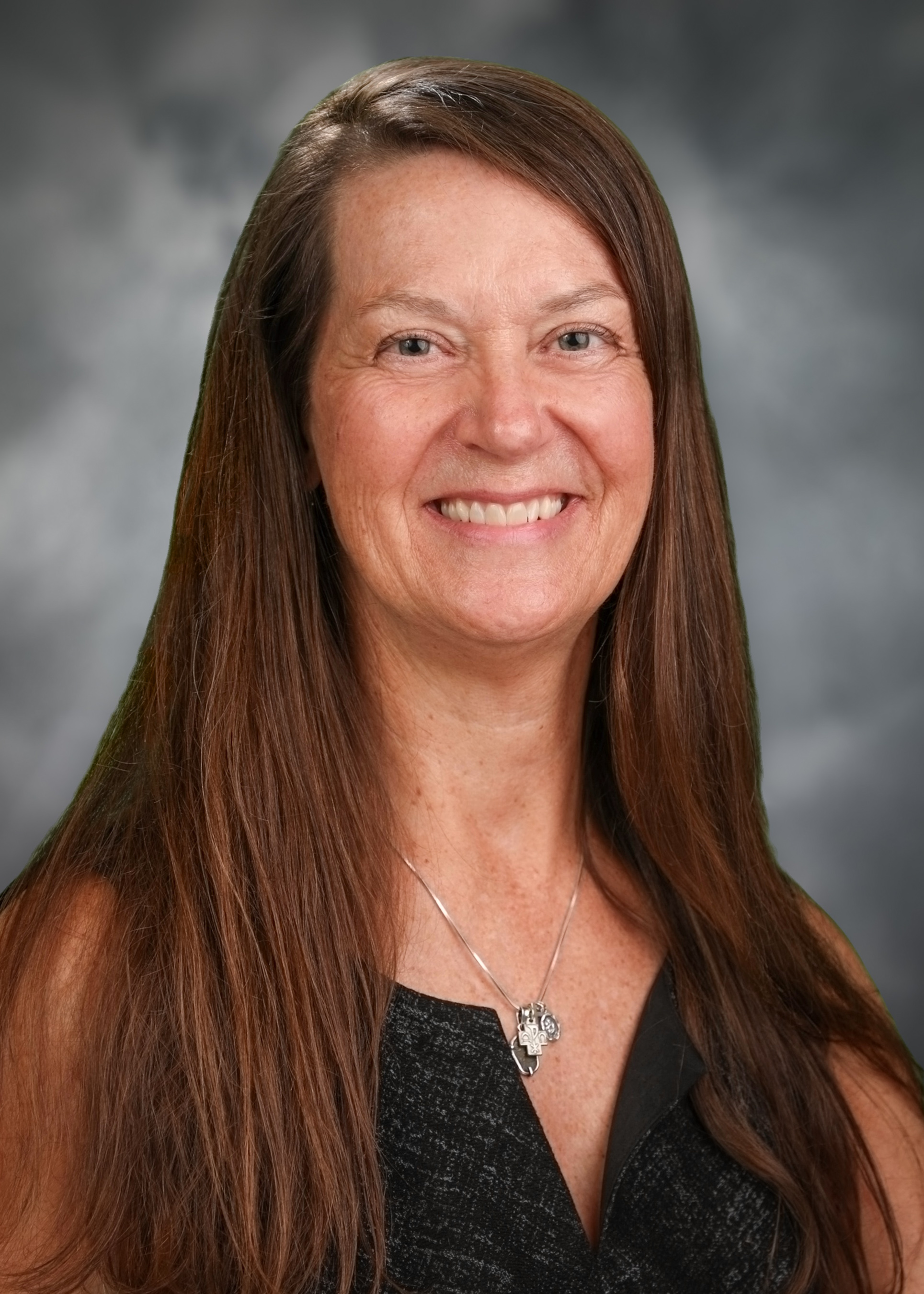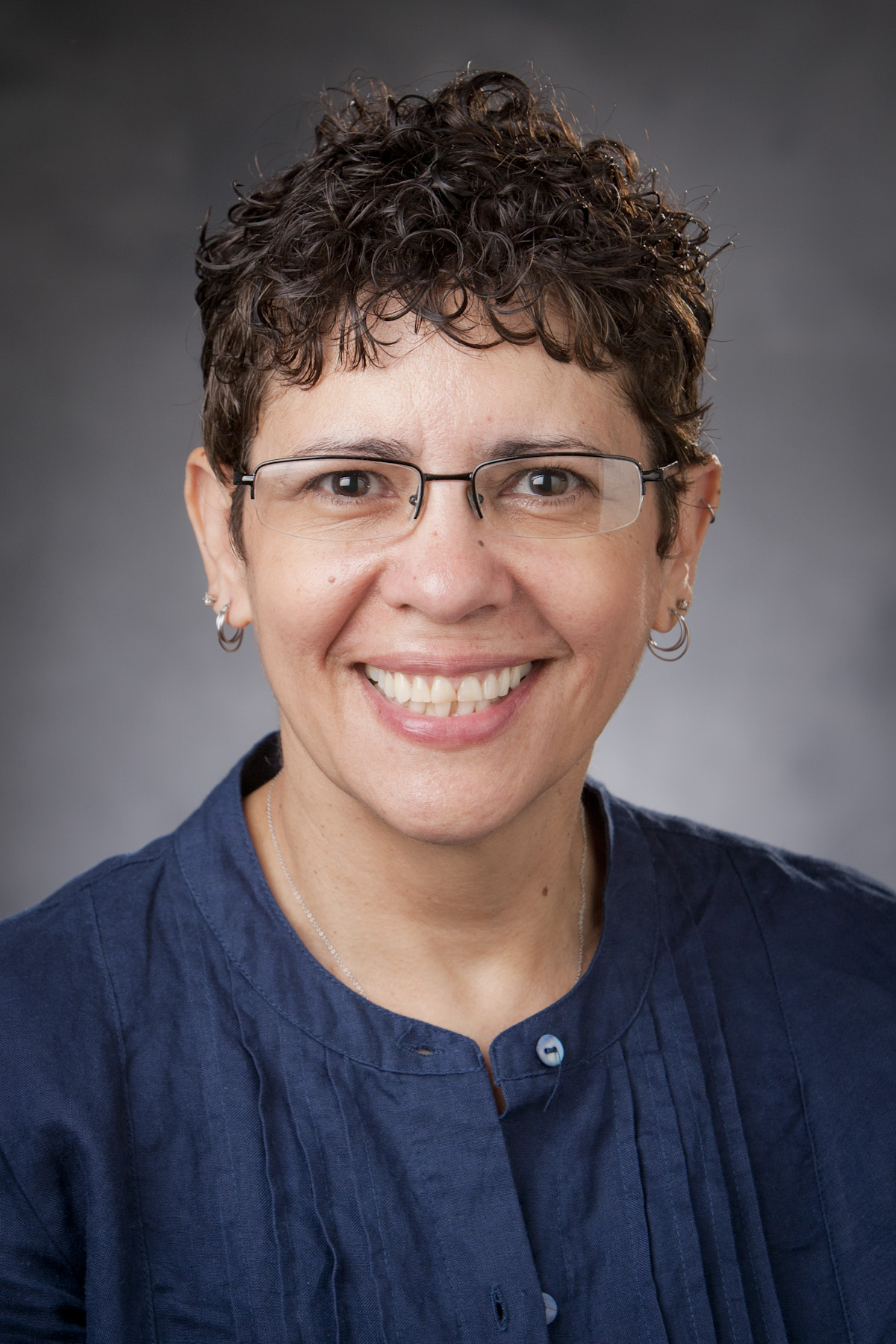School of Nursing Celebrates the Role of Advanced Practice Nurses
Duke School of Nursing raises awareness of the critical role of nurse practitioners in clinical practice, health equity, nurse workforce development and health policy.

The first nurse practitioner (NP) program began in 1965 at the University of Colorado in response to a shortage of primary care providers (PCPs) after Medicaid expanded its coverage. Almost 60 years later, the United States again faces a growing shortage of PCPs. A 2018 UnitedHealth report estimated there were 44 million Americans living in a county with inadequate access to primary care. According to the report, that number could be slashed by 70 percent by doing one thing: allowing NPs to practice to the full extent of their education, training and certification.
Currently, 26 states plus Washington, D.C., allow NPs full practice authority (FPA), meaning NPs can practice without a supervising physician. The remaining states, including North Carolina, have been fighting for full practice authority for decades.
“It doesn’t make any sense,” said Vincent Guilamo-Ramos, PhD, MPH, LCSW, RN, ANP-BC, PMHNP-BC, FAAN, dean, Duke University School of Nursing, vice chancellor, nursing affairs, Duke University. “The scientific evidence highlighting the strength of NP clinical care outcomes is clear—NPs provide high quality health care that is patient centered and achieves equal and in some cases, better health outcomes than their physician counterparts. We need every single health care provider to practice at the highest level of their education, license and competencies.”
Through education, practice and policy, Duke University School of Nursing (DUSON) continues to be a national leader in the training of highly skilled advanced practice nurses. Moreover, this month, DUSON joins the country in celebrating Nurse Practitioner Week Nov. 13-19 to raise awareness of the critical role advanced practice nurses play in meeting the health care needs of our nation.
In the Classroom
“The beauty of nurse practitioners is that we’re educating licensed and practicing nursing professionals,” said Anne Derouin, DNP, APRN, CPNP, PMHS, FAANP, assistant dean of the Master of Science in Nursing (MSN) program. Advanced practice nursing students have already completed a degree in nursing, so their education goes deeper, and their scope widens. Master’s students often have years of experience working on interprofessional teams and caring for patients. This sets NPs apart from many other types of health care providers who might not have any health care experience when they start their education. “So they understand history-taking skills, cultural competency issues, family needs and patient-centered care,” Derouin said.
This unique foundation allows advanced nursing students to hone their specialties. Depending on what area of expertise they choose, they complete at least five more semesters of schooling. While the majority of NPs become family practitioners, many choose specialties such as pediatric care, HIV and sexual health, gerontology, psychiatry and addiction and adult health.
As the top nursing school for many of these NP specialties, DUSON already uses cutting-edge teaching techniques such as simulation, interprofessional collaboration, standardized patients and hands-on skills in the clinical setting, Derouin said. Educators continue to use these tools as they shift to the new competency-based approach as outlined in The Essentials, a road map for nursing school curriculum created by the American Association of Colleges of Nursing (AACN).
The competency approach allows nursing students to progress at the rate they master required skills, which means NPs can hit the ground running, with less time for on-boarding and training, Derouin said. “We envision nurse practitioners as the hub of the health care delivery team.” Partnering with interprofessional health care providers including, physicians, PAs, social workers, community health workers, etc. to meet patient needs, NPs often have the closest relationship with the patient and are in tune with their personal and medical needs, which often results in a better health outcome. “Nurse practitioners will be the glue that holds the health system together and keeps our patients returning for ongoing care.”
In the Clinic
DUSON trains all nurses, not just NPs, to provide holistic care and view the patient not just as a person with a disease or health problem, but as someone who has a family, a community and a broader life context, all of which contribute to their health status. “You ask about barriers at home, about work, their psychosocial background, anything that may impede care, even food insecurity,” said Iris Padilla, PhD, MBA, MSN, APRN, FNP-BC, FAANP, associate professor at DUSON. These are questions nurses are uniquely trained to ask, as opposed to other health care providers who follow a distinct model of care. In addition, NPs in particular are clinically trained to be advocates for their patients, collaborating as a team with other providers to ensure patients’ needs are met, especially when it comes to health promotion and chronic disease management.
“We truly prepare our graduates for the real world clinical context because unfortunately, there’s a lot of individuals at risk of or already diagnosed with chronic conditions,” said Padilla, who is also a preceptor and specializes in diabetes management. Most adults have one chronic health condition and can expect to develop three or more as they age. Especially in underserved and disadvantaged areas that are often rural, it is imperative NPs learn to manage those conditions, knowing how to collaborate with specialists who often are not available to these populations.
Padilla clinically practices in a federally qualified health clinic (FCHC) in Durham where she runs a weekly diabetes clinic. As an NP, Padilla can diagnose, order tests and prescribe medications. In understaffed areas NPs often become the lead caregiver, providing a health home for patients who face inadequate access to health care.
Fewer health care providers means fewer preceptors, and Padilla says the shortage has made her become more creative, encouraging NPs and registered nurses (RNs) to take on more responsibilities within the scope of their expertise. Using a team approach to patient care — where a medical assistant, an RN, a mental health provider, an NP, and even a front-desk scheduler, all work with the same patient — can help relieve some of the burden on single providers. Nevertheless, encouraging nurses to practice at the top of their certification becomes difficult when an outside regulatory force intercedes.
Across the Country
North Carolinians who have easy access to health care may not realize that dozens of counties in the state have no obstetrical providers and dozens more do not have access to primary care providers. However, the shortages are nothing new. “We’ve had this for years, if not decades, and it’s only getting worse as we sit here and dither about it,” said Representative Gale Adcock, MSN, FNP-C, FAANP, FAAN, consulting associate and member of the N.C. House. The dithering Adcock refers to is an ongoing discussion surrounding full practice authority (FPA) for NPs, and barriers to the full utilization of other health care professionals in North Carolina.
The SAVE Act, a bill introduced in every legislative session since 2015, would establish FPA for North Carolina advanced practice registered nurses (APRNs)—nurse practitioners, clinical nurse specialists, certified nurse midwives, and certified registered nurse anesthetists. New Mexico passed the first FPA legislation 30 years ago, she noted, and more than half of states have since followed suit. State medical societies and some physician specialty groups like anesthesiologists are the only opponents, citing threats to patient safety, an argument not upheld by studies, Adcock said. “All the evidence confirms that nurse practitioner care is safe, high quality, and as good as or better than care given by physicians. And there’s no reason, based on evidence, for there to be a requirement for physician supervision.”
All across our state, patients need care and NPs could deliver it, but outdated laws and regulations stand in the way, she said. “Nurse practitioners won’t do anything after an FPA law is passed that they aren’t able to do now. We’re already educated and nationally certified to practice fully. In North Carolina, we’re just not allowed to do everything we’re educated to do without first having a collaborative practice agreement signed with a physician.”
The “supervision” also requires a meeting between the NP and physician every 6 months, of no specific duration. Physicians charge NPs owning their own practices for these regulatory requirements, fees that start at $18,000 and often go much higher. This cost can be prohibitive for many NPs, especially those wanting to practice in low-income areas where the need is critical. In parts of the state without physician shortages, like urban areas, NPs can face difficulty finding a physician willing to sign an agreement because they introduce unwanted competition. Adcock’s full practice authority bill has bipartisan support, with 100 bill sponsors being almost evenly divided among Republicans and Democrats. The SAVE Act was included in a Senate health care omnibus bill that passed 44-1 in June 2022 but was not taken up by the House for a concurrence vote before the legislature adjourned. The initiative has picked up momentum and Adcock plans to file the bill again in the long session that begins in January 2023.
At the Table
Legislative policy issues like FPA are a great example of how important it is for nurses to have a seat at the table when health care decisions are being made, Ramos said. “The goal of our school is to have nurses, whether they’re at the bedside or working in D.C., to be able to effect change and to demonstrate leadership and innovative thinking about how health services are delivered, and how we can improve social conditions and outcomes.”
As the largest segment of the health care workforce, America’s 4.3 million nurses must be part of the decision-making processes, Ramos said. When they are not, the profession is handcuffed, and patients suffer. During the height of the COVID-19 pandemic, when the country was experiencing a moment of great need, nurses were summoned, and FPA was granted unilaterally across all states so NPs could go into communities and administer vaccines, tests, COVID education and support to suffering patients. Some of those states have now reversed the waivers.
"as the largest segment of the health care workforce, nurses must be part of the decision-making processes."
Vincent Guilamo-Ramos
Dean
“It’s a regulatory issue that allows that to happen or not happen,” Ramos said. “In the United States, we need to allow all health care providers—whether they be pharmacists, physician assistants or nurse practitioners—to exercise full practice authority. In order to respond to the ongoing public health and unmet health care needs of our nation, all health care providers must practice at the highest levels of our training and clinical skills.”
Nurses are trained in whole person contextualized care and use their technical and clinical expertise, coupled with their intimate understanding of patients’ needs. The result is multi-faceted proactive health care that includes cultural competence.
Health care is delivered largely on a model where resources are allocated primarily based on caring for the sick. Reassessing that model, and putting the bulk of resources toward health promotion and preventative care, where nurses have extensive expertise, would keep people out of hospitals and more effectively managing their health at home, Ramos said.
NPs, in particular, have a well-developed ability to know what is going to work for patients because of the amount of time they spend with them, listening to their challenges.


